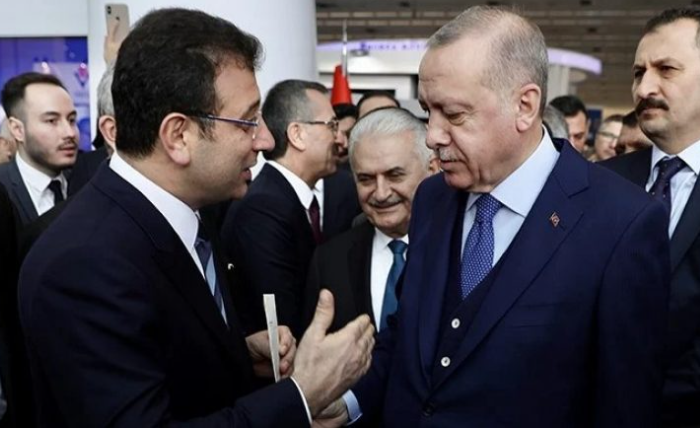Turkey: The Imamoglu Affair and Shifting Trends in Turkish Governance and Regional Status
The recent arrest and legal battles of Istanbul Mayor Ekrem Imamoglu have sent shockwaves through Turkey and the wider geopolitical arena. Will Turkey retain its standing as a paragon of democracy in the Middle East, or will continued civil strife spurred by a trend toward authoritarianism undermine its regional power and shift political dynamics within the Middle East?
TURKEY
Raymond Puentes
4/14/20253 min read


Last week, Istanbul mayor Ekrem Imamoglu made his first appearance in court since his arrest last month. Further action was taken by Istanbul University, which chose to invalidate his previous diplomas and other accolades in light of his arrest. This was a significant decision, as it would effectively disqualify Imamoglu from holding public office. He has since been placed in a high-security jail, making his first public appearance in court a few days ago. The office of mayor in Istanbul has often been used as a springboard for broader political ambitions. Imamoglu's position not just as the city's mayor, but also as a potential frontrunner in the 2028 Turkish election, makes the timing of these incidents all the more suspicious. Since his arrest on March 19th, protests have ignited across the country, with many denouncing the legal condemnation of Imamoglu as a ploy from Turkish President Recep Tayyip Erdogan to retain power. Given Turkey's strategic position in the Middle East, this has widespread implications for geopolitical relations during an age of shifting dynamics within the region.
Imamoglu was arrested under corruption and terrorism charges. These charges were, in part, due to prior collaboration with the Kurdistan Worker's Party, which is outlawed in Turkey. When taken into consideration alongside his political rivalry with Erdogan, it causes many to wonder whether these charges have underlying political motivations. Erdogan and Imamoglu have come head to head in politics for several years, especially after Imamoglu's mayoral victories in the elections of 2019 and 2024. This has allowed him to continue building a political "brand" for himself and could set up a strong campaign to contend for the presidency in 2028. Imamoglu's arrest has only bolstered his public support, and has caused many to grow concerned with the state of democracy in Turkey.
Turkey has aspired to be a regional power in the Middle East for many years, a goal rooted in its former days as the Ottoman Empire, which once ruled over a decent portion of the region. Erdogan, who has wielded considerable political influence through various public offices in the past two decades, has always aimed to increase Turkey's influence in the Middle East. However, the country is often left to navigate a complex web of alliances and political tensions. These goals become exceedingly harder to achieve when civil unrest becomes a growing problem. Despite this, international reactions to the arrest of Imamoglu, particularly among other Middle Eastern nations, have been scarce. Given the history that many of them have with handling political dissent, many governments might view Erdogan's actions with a degree of pragmatic understanding. These regimes, often facing their own challenges from opposition movements, may be hesitant to publicly criticize the domestic affairs of a significant regional actor like Turkey. The lack of strong and unified condemnation could signify a reluctance to interfere in internal Turkish affairs, or it could indicate acceptance of the actions taken by Erdogan's government to target Imamoglu and strip him of his influence.
The arrest of Imamoglu could bring major implications by damaging Turkey's international brand. As a secular state, Turkey has worked hard to brand itself as a politically moderate democracy with a positive image. However, the arrest of a popular mayor who was elected democratically could cause some to perceive Turkey as moving towards authoritarianism, much like other Middle Eastern nations. This would limit the country's soft power, and damage their credibility as a democratic state. On the other hand, it could also energize opposition groups and activists, who might feel more motivated to take a stand against Erdogan's government in pursuit of their own political agendas. This could lead to greater political reforms depending on which path is taken.
In the short term, Imamoglu's arrest and the ensuing domestic turmoil could lead to a shift of Turkey's geopolitical focus in the Middle East, causing them to have a more internal focus in their attempt to quell civil unrest. This would present a great opportunity for other nations to expand their influence, superseding Turkey in different regions. The arrest of Imamoglu and its implications for Turkish democracy could later signal a concerning trend towards increased authoritarianism in a key regional power. This could embolden similar regimes in the Middle East and potentially dim the prospects for democratic reforms in the region. Any shift towards authoritarianism also stands to tip the balance in various regional alliances, perhaps reshaping the political landscape of the Middle East.
In conclusion, the arrest of Istanbul Mayor Ekrem Imamoglu is not merely a domestic Turkish affair but an event with significant potential to reshape the geopolitical landscape of the Middle East. The charges against him, the muted reactions from many Middle Eastern governments, and the potential influence on regional opposition movements all underscore the interconnectedness of Turkish domestic politics and the stability and democratic aspirations of the wider Middle East. The trajectory of Turkey in the coming years will be closely watched by its neighbors and the international community, as it could have lasting implications for the region's political future.


